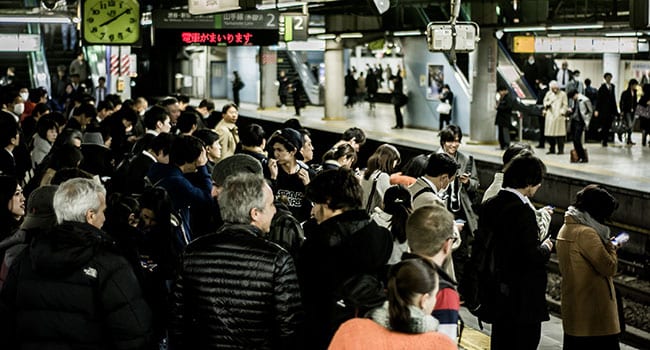 There’s not an economic model or crystal ball that can give us a clear and reliable picture of what lies ahead in 2020. No forecast, no matter how thorough and well thought through, can foresee or take into account all the wild cards that chance, nature or our all-too-human political leaders can throw at us.
There’s not an economic model or crystal ball that can give us a clear and reliable picture of what lies ahead in 2020. No forecast, no matter how thorough and well thought through, can foresee or take into account all the wild cards that chance, nature or our all-too-human political leaders can throw at us.
Nevertheless, I’m making one fearless prediction: In 2020, the world will be smaller than it was in the past. Not physically or geographically smaller, of course, but closer, tighter, more interconnected and interdependent than ever.
For example, people in South America are now breathing smoky air not because of anything they have or haven’t done with respect to energy use or climate change. It’s because the winds that blow around our planet have pushed smoke from the Australian forest fires half way around the world.
Tragedies can’t be localized. Take the catastrophic loss of the plane in Iran. Many mourned the Canadians who died but if we see these victims only as Canadians, we’re missing much.
The reasons for their journeys show that many still had important parts of their families and their lives in Iran. Some held dual citizenship and two passports. Like so many people , their families, careers and activities aren’t constrained within the boundaries of one nation. They live global lives on our shrinking planet.
Many populist leaders and their followers don’t embrace this global reality. They see their group, nation or tribe as unique and special.
However, DNA analysis makes narrow nationalism much harder to define and defend.
DNA shows that we have in our ancestry traces going back to Neanderthals and across many nations, tribes and groups, some of which we may treat as enemies. People should treasure and maintain their culture and background, but not at the expense of others who may turn out to be close relatives.
Economic and political separatism comes at a great cost.
And creating or hardening borders generates real human costs. Think of the generations of Korean families that have been torn apart.
However, the human costs are hard to measure. The economic costs are much easier to get a handle on.
Educating international students is a very important earner of foreign exchange for countries like the United States and Canada. Since the U.S. has hardened its borders, far fewer bright international students have chosen to go there. The U.S. loses not only the foreign exchange they bring to study and live in there, but also any contribution to research and knowledge they might make. The good news is that many of these students now come to Canada.
Even though Brexit has yet to be implemented, some British people are already beginning to pay the price for leaving the European Union. The threat to free movement of labour from Europe to the United Kingdom has meant that tonnes of British crops have been left rotting in the fields for lack of pickers. Whether that food was for consumption in Britain or to be exported, this is a great loss and not just to the farmers, even though they bear the heaviest burden.
The United States, big and rich, is probably in the best position to isolate itself from the world economy. Yet it’s paying a price for its attempts to put America first.
Tariffs have not proved successful. The U.S. put a tariff on Canadian steel and aluminum. Of course, that hurt those industries in Canada.
By increasing the price of imported metals in the U.S., the tariff was supposed to reduce imports and encourage more steel and aluminum production in the U.S. Instead, many American users of these metals transferred production out of the U.S. to places where they could get their inputs more cheaply. Bringing the finished goods into the U.S. might not be necessary. General Motors now sells more cars in China than in the U.S. The tariff has been removed.
The American arch rival China has also been caught in the global net of the shrinking world. Take the ever-growing and vital field of electronics. Much as it would like to be independent, China still needs certain components and technology from the U.S. Though its leaders hate to admit it, the U.S. could not meet its population’s needs for cellphones and other electronic devices without imports from China.
Our world is now so integrated that even locavores (those who eat only locally grown and produced food) are having trouble. In Canada, they have no need to go hungry, although the diet might get a bit monotonous, especially in winter. However, Canada doesn’t produce one ingredient essential to our society: coffee. In a nod to global realities and our ever-shrinking world, locavores have defined coffee as local enough if it’s roasted here even if we don’t grow it.
We will all benefit by being flexible and open to global realities on our increasingly interconnected planet.
Troy Media columnist Roslyn Kunin is a consulting economist and speaker.
The views, opinions and positions expressed by columnists and contributors are the author’s alone. They do not inherently or expressly reflect the views, opinions and/or positions of our publication.


